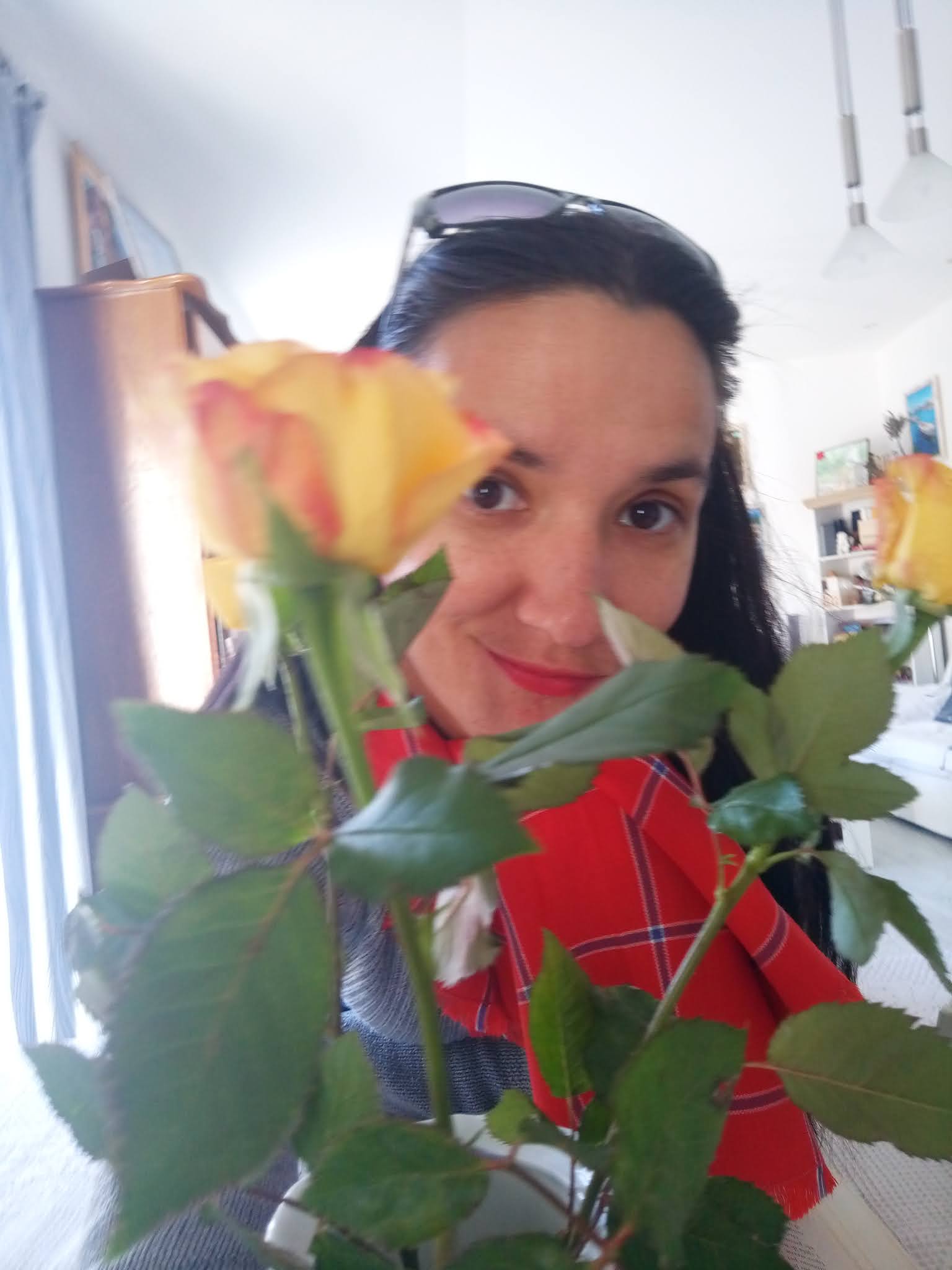In this post, I will review People Who Planted Trees (Ljudi koji su sadili drveće), a novel by Croatian writer Josip Mlakić. Published in 2010, this novel focuses on a group of war veterans and friends living in an unnamed city in Bosnia and Herzegovina. The city is left unnamed so that it can represent any city in Bosnia and Herzegovina. While the general atmosphere of this novel is bleak and depressive, the book ends on a more hopeful note.
Josip Mlakić is a contemporary Croatian writer (1964) from Bosnia and Herzegovina. Known mostly for his antiwar prose, this prolific writer has won a number of local literary awards. He also writes screenplays. This was my second novel by this writer, the first one being his novel The Living and the Dead (Živi i mrtvi). I can draw some parallels between these two novels, mostly in the antiwar themes they explore. However, there are also some differences. The Living and the Dead has fantastic elements, while this novel doesn't. This book is very realistic in tone and style.


As I explained, this novel focuses on a group of friends and is told from their perspective. All members of this group of friends suffer from PTSP (post traumatic stress disorder). I think it was a bold move on the part of the writer to choose to write about mental illnesses. Moreover, Josip Mlakić doesn't shy away from representing the post war society with all its traumas either. This writer describes the postwar reality of life in Bosnia and Herzegovina in painful detail. However, there's also hope. As the title of this novel implies, it is a green kind of hope. Hope in this novel comes from planting trees.
PEOPLE WHO PLANTED TREES, A NOVEL BY JOSIP MLAKIĆ
This novel wasn't an easy read. As I explained, it explores some rather difficult themes and goes to some dark places. However, there is hope in this novel.
A SHIFTING NARRATIVE AND A GROUP OF FRIENDS
The narrative shifts following different veterans. One of them is an ex heroine addict from Zagreb who decides to travel to Bosnia and Herzegovina to visit his veteran friends. To gather the money for the trip, he sells a painting from a renowned Croatian artist. There is symbolism in this. Another usage of symbolism comes in the form of ceramic dogs. One of the veterans collect ceramic figures of fierce dogs. Fierce on the outside, these ceramic dogs are fragile on inside and break easily. This character rather likes the symbolism behind it.
A DOCTOR THAT CURES PATIENTS WITH LITERATURE
My favourite character in this novel is a doctor that cures patients with literature. Yes, you read that right. This compassionate doctor character often gives his patients a few carefully selected pages of literature to read. He uses literature as a cure. A character after my own heart. When one of the characters that suffers from severe PTSP and anxiety has a particularly bad episode, doctor gives him something different to read- a manual about planting trees. It is through planting trees that the hope is found at the end.
PLANTING TREES AS THERAPY
The novel hence ends on a hopeful note, with characters finding comfort in planting trees.
7 MORE READING RECOMMENDATIONS AND BOOK REVIEWS I HAVE SHARED IN 2022
MORE CROATIAN AUTHORS:
FOR THOSE WHO WANT TO KNOW MORE ABOUT THE AUTHOR
ZA ONE KOJI ŽELE ZNATI VIŠE O AUTORU:
Mlakić, Josip, hrvatski književnik (Bugojno, BiH, 24. I. 1964). Studij strojarstva završio u Sarajevu 1988. Pozornost čitatelja i kritike privukao je kratkim romanima Kad magle stanu (2000) i Živi i mrtvi (2002), s tematikom hrvatsko-bošnjačkog sukoba u Bosni. Ispreplećući sjećanja na slike mira i slike rata, dojmljivo je prikazao atmosferu ratnoga kaosa i apsurda. U romanu Čuvari mostova (2004) tematizira poratno razdoblje, a u Psima i klaunovima (2006) vrijeme uoči početka ratnih sukoba u BiH. Roman Tragom zmijske košuljice (2007) bavi se bosanskom prošlošću, a Ljudi koji su sadili drveće (2010) svijetom ratnih veterana u mirnodopskim uvjetima. Planet Friedman (2012) opisuje antiutopijsko društvo, a Svježe obojeno (2014) i Božji gnjev (2015) vraćaju se tematici rata u BiH. Objavio je i više pripovjednih zbirki (Puževa kućica, 1997; Odraz u vodi, 2002; Obiteljska slika, 2002; Ponoćno sivo, 2004) te pjesničku zbirku Oči androida (2004).
Citiranje:
Mlakić, Josip. Hrvatska enciklopedija, mrežno izdanje. Leksikografski zavod Miroslav Krleža, 2021. Pristupljeno 20. 3. 2022. <http://www.enciklopedija.hr/Natuknica.aspx?ID=68122>


Thank you for stopping by.
Hvala na posjeti.













Thank you for all the fantastic reviews of little-known books and writers. Reading a book is psychotherapy, something that with music and a good movie relaxes and makes us more resilient and better people :) Thank you again Ivana:)
ReplyDelete💕
Deletevery pretty photos:) and those flowers mmmm
ReplyDelete💕
DeleteLove the photos!
ReplyDeleteThank you
DeleteSuch a lovely post about this book. Of course, it's a great title for EARTH DAY too! Thanks so much for the review. It does look to be a soulful book. So great to see you reading outside, too.
ReplyDeleteYes, exactly. Planet Earth needs more trees.
DeleteThe book sounds to be a great read, touching on many things that is going on these days and in the past too. Awesome photos, as well. Thanks so much for the wonderful review. All the best to a beautiful Earth day & everyday!
ReplyDelete💕
DeleteNo lo conocía pero si puedo lo leeré. Te mando un beso.
ReplyDelete💕💕💕💕
DeleteLove these pictures.
ReplyDeleteLove: Mariann Yip
https://www.mariannyc.com/vista-encantada-escape/
💕
DeleteI havent read anything from the any Croatian writer! It sounds really good. Thank you so much for the beautiful photos. Happy Friday.
ReplyDelete💕💕💕💕💕
DeleteThis book sounds very interesting, Ivana, although it might be too dark for me.
ReplyDeleteI absolutely love the thought of a doctor curing his patients with literature! xxx
Yes, that was my favourite bit too!
DeleteI can't imagine this would be an easy read since the characters are all dealing with PTSD but it sounds like it offers a compelling perspective and it's good that offers hope.
ReplyDelete<3
Delete